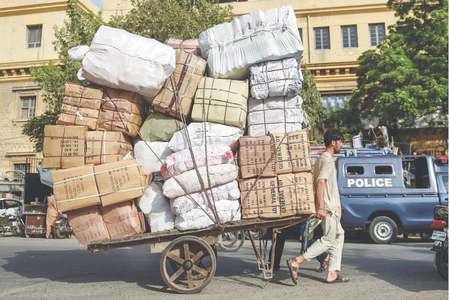ISLAMABAD: The government has decided to reform its social safety net in order to include the ‘missing middle’ segment of society, which falls outside the existing safety net programmes and are also excluded from the limited formal systems, it has been learnt.
This reform requires introducing the next generation of interventions that move beyond social assistance and are able to bring a larger segment of population under the social protection umbrella; disrupting some of the traditional social protection delivery systems to make them more responsive and scalable to crisis situations and cater for a larger number of beneficiaries and programmes; and focusing social assistance programmes on safeguarding and rebuilding human capital after the crisis.
The ‘missing middle’ of social protection in Pakistan is largely composed of people engaged in the informal sector who are vulnerable to shocks due to limited savings and assets. This group is not eligible for the existing safety net programmes targeted to the very poor (bottom 20 per cent) not covered by formal social insurance, including formal pensions, which have a very low coverage of 2.3pc, according to details of the proposed reform.
The recent ‘2020 Labour Expert Group Report’ recommended that social protection should be extended to this group, in line with ‘Ehsas’ provisions. However, Pakistan’s high levels of informality imply this ‘missing middle’ covers most workers, and given its severe fiscal constraints, coverage will undoubtedly have to be expanded gradually. This results area will, therefore, help the government identify this group and develop suitable innovative hybrid social assistance-social insurance programmes to help reduce their vulnerability to systematic and idiosyncratic shocks.
Government says reform will be made in its social safety net
The government is seeking World Bank assistance for the ‘Pakistan Crisis-Resilient Social Protection’ (CRISP) project which aims to advance the country’s social protection system to make it an adaptive, crisis-resilient system and move towards the next generation of programmes beyond social assistance.
The World Bank assistance for the $600 million project will be in the amount of $300 million and will span fiscal years 2021-24.
The programme intends to achieve this by introducing positive disruptions to the existing safety net and delivery systems, introducing new reform directions, and consolidating recent gains.
More specifically, the project will support the next generation of social protection interventions targeting the ‘missing middle’ by testing innovative hybrid social assistance-social insurance mechanisms and promote medium-to long-term mitigation of Covid impacts by prioritising the human capital accumulation among the youngest in the early recovery phase.
Covid-19 laid bare coverage gaps and rigidities in the social protection system, which if corrected would enable a more effective crisis response and build resilience to future crises.
These issues had been identified before the Covid-19 outbreak, but were highlighted by the crisis as limiting the extent of the response.
Published in Dawn, August 10th, 2020














































